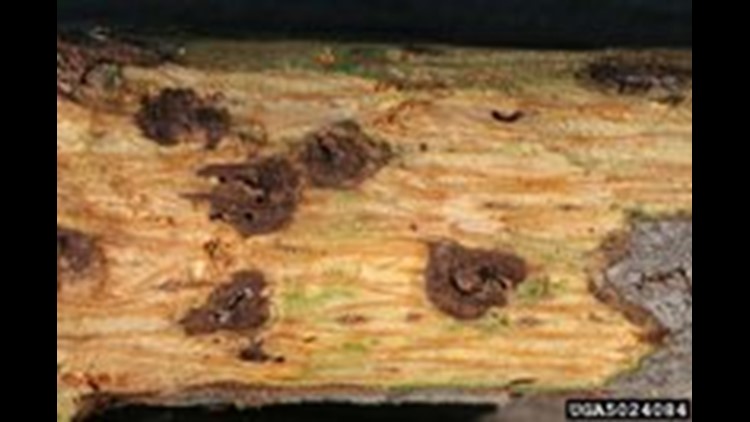Following the detection of Thousand Cankers Disease in Lancaster County, the Pennsylvania Department of Agriculture today enacted a quarantine, effective immediately, restricting the movement of wood and wood products.
Lancaster joins Chester, Delaware, Montgomery and Philadelphia counties, which were quarantined in August 2014, and Bucks County, which was quarantined in 2011.
The quarantine restricts the movement of all walnut material and hardwood firewood from the six Pennsylvania counties and other states known to have the disease.
The disease was found in fields with black walnut trees in Drumore Township, Lancaster County. Samples were verified by the state and federal departments of agriculture. This is the third detection of Thousand Cankers Disease in the state.
“Thousand Cankers Disease poses a significant threat to our billion dollar hardwoods industry, as Pennsylvania walnut is considered the best in the world,” said Agriculture Secretary George Greig. “Comply with this additional restriction on wood movement from these six southeastern counties and remember: transporting wood is the easiest way to spread the species that can devastate our forests.”
The disease is introduced to a tree when Walnut Twig Beetles, which carry the fungus, tunnel beneath the bark of walnut trees, causing small cankers to form. The beetles, dark brown and similar in size to a poppy seed, are extremely difficult to detect. As more beetles attack the tree, the number of cankers increases, slowly starving the tree of nutrients and causing it to die within 10 years of initial infestation.
Early symptoms of the disease are yellowing of leaves and foliage-thinning of the upper crown of the tree. As the disease progresses, larger limbs die followed by the trunk.
Black walnut trees, which make up less than half of one percent of hardwood trees in Pennsylvania, produce high-valued lumber used in woodworking and furniture-making. The nuts of the trees are consumed by humans and wildlife.
The quarantine restricts the movement of all walnut material including nursery stock, budwood, scionwood, green lumber and firewood. It also covers other walnut material living, dead, cut or fallen including stumps, roots, branches, mulch and composted and uncomposted chips. Due to the difficulty in distinguishing between species of hardwood firewood, all hardwood firewood is considered quarantined.
The quarantine also restricts the movement of walnut material and hardwood firewood from states known to have Thousand Cankers Disease including Arizona, California, Colorado, Idaho, Indiana, Maryland, Nevada, New Mexico, North Carolina, Ohio, Oregon, Tennessee, Utah, Virginia and Washington.
Nuts, processed lumber and finished wood products without bark are exempt from the quarantine.
Non-compliance with the quarantine order could result in criminal penalties of up to 90 days imprisonment and a fine of up to $300 per violation, or a civil penalty of up to $20,000 per violation.
Since many species of wood-boring insects, including the Walnut Twig Beetle and Emerald Ash Borer, can be spread through transport of infested firewood and logs, campers and homeowners are encouraged to: use only locally harvested firewood, burn all of it on-site and not carry it to new locations.
The department is working with other state and federal agencies and Penn State to survey for walnut twig beetles and slow the spread of Thousand Canker Disease, for which there is no known cure.
An informational session will be held on Monday, November 10, at 1 p.m.at the Lancaster County Extension Office 1383 Arcadia Road, Lancaster.
People who suspect they have seen Thousand Cankers Disease or walnut twig beetles should contact their local county cooperative extension office or call the department’s hotline at 1-866-253-7189. Visit www.agriculture.state.pa.us and search “Thousand Cankers.”



